音声解説付き中学英語の英文法。中学英語の基本文、全部できるか確認・チェック!
音声解説付き『中学英語の英文法』に出ている英文の一例

音声解説付き『中学英語の英文法』に出ている英文を一部、下記に載せます。
中学の英語で学習する文法の基本文です。
英文を訳せるか?英作文できるか?など、ご活用ください。
全部わかるかチェックしてみましょう。
↓ 英語が苦手な子に最適の参考書 ↓
あわせて読みたい
音声解説付き『中学英語の英文法』 は音声解説による参考書です。音声解説を聞きながらテキストを読み進めますので、わかりやすく、楽に理解でき、読んでいる途中で飽きて中断することなく効率よく読み切ることができます。
→ 詳細はこちら
音声解説付き『中学英語の英文法』の例文
This is a book.(これは本です。)
That is an apple.(あれはりんごです。)
This is not a chair.(これはいすではありません。)
Is this a pencil?(これはえんぴつですか。)
Yes, it is.(はい、そうです。)
No, it is not.(いいえ、ちがいます。)
I am Tom.(私はトムです。)
You are Emi.(あなたは絵美です。)
I am not John.(私はジョンではありません。)
Are you Kumi?(あなたは久美ですか。)
Yes, I am.(はい、そうです。)
No, I am not.(いいえ、ちがいます。)
He is a student.(彼は学生です。)
She is Emi.(彼女は絵美です。)
Emi is a teacher.(絵美は先生です。)
He is not a teacher.(彼は先生ではありません。)
Is Kumiko a doctor?(久美子は医者ですか。)
Yes, she is.(はい、そうです。)
No, she isn’t.(いいえ、ちがいます。)
What is this?(これは何ですか。)
It is a desk.(それは机です。)
What is that?(あれは何ですか。)
It is an orange.(それはみかんです。)
This animal is a dog.(この動物は犬です。)
That animal isn’t a cat.(あの動物は猫ではありません。)
Is this animal a dog?(この動物は犬ですか。)
Yes, it is.(はい、そうです。)
No, it isn’t.(いいえ、ちがいます。)
This is my book.(これは私の本です。)
That is not her album.(あれは彼女のアルバムではありません。)
This is Tom’s bag, too.(これもトムのかばんです。)
This is a new car.(これは新しい車です。)
That is not an old house.(あれは古い家ではありません。)
This car is new.(この車は新しいです。)
Is this a pen or a pencil?(これはペンですかそれともえんぴつですか。)
It is a pen.(それはペンです。)
These are pens.(これらはペンです。)
Are those your albums?(あれらはあなたのアルバムですか。)
Yes, they are.(はい、そうです。)
No, they aren’t.(いいえ、ちがいます。)
We are students.(私たちは学生です。)
Are you students?(あなたたちは学生ですか。)
Yes, we are.(はい、そうです。)
No, we aren’t.(いいえ、ちがいます。)
I like English.(私は英語が好きです。)
I don’t play tennis.(私はテニスをしません。)
Do you study English?(あなたは英語を勉強しますか。)
Yes, I do.(はい、します。)
No, I don’t.(いいえ、しません。)
She plays tennis.(彼女はテニスをします。)
Kumi doesn’t like dogs.(久美は犬が好きではありません。)
Does Tom use this pen?(トムはこのペンを使いますか。)
Yes, he does.(はい、使います。)
No, he doesn’t.(いいえ、使いません。)
I have a car. I like the car.(私は車を持っています。私はその車が好きです。)
We play tennis here.(私たちはここでテニスをします。)
They study English on Sunday.(彼らは日曜日に英語を勉強します。)
What do you have?(あなたは何を持っていますか。)
I have a ball.(私はボールを持っています。)
What sport does Ken like?(健は何のスポーツが好きですか。)
He likes baseball.(彼は野球が好きです。)
He runs fast.(彼は速く走ります。)
I sometimes play the guitar.(私は時々ギターを弾きます。)
Clean the room.(その部屋を掃除しなさい。)
Don’t play tennis.(テニスをしてはいけません。)
Let’s study English.(英語を勉強しましょう。)
How many pencils do you have?(あなたは何本の鉛筆を持っていますか。)
I have three (pencils).(私は3本(の鉛筆を)持っています。)
Tom has some books.(トムは数冊の本を持っています。)
“Who is he?” “He is Tom.”(「彼は誰ですか。」「彼はトムです。」)
“What are you?” “I am a doctor.”(「あなたの職業は何ですか。」「私は医者です。」)
This pencil is hers.(この鉛筆は彼女のものです。)
Those books are mine.(あれらの本は私のものです。)
His dog is under the table.(彼の犬はそのテーブルの下にいます。)
Tom plays tennis in the park.(トムは公園でテニスをします。)
I know him.(私は彼を知っています。)
I go to school with her.(私は彼女と学校に行きます。)
Where is your bag?(あなたのかばんはどこにありますか。)
It is on the desk.(それはその机の上にあります。)
Where does Emi play the piano?(絵美はどこでピアノを弾きますか。)
She plays the piano in her room.(彼女は彼女の部屋でピアノを弾きます。)
She can run fast.(彼女は速く走ることができます。)
Tom can’t play the piano.(トムはピアノを弾くことができません。)
Can Emi speak English?(絵美は英語を話すことができますか。)
Yes, she can.(はい、できます。)
No, she can’t.(いいえ、できません。)
Tom is playing tennis now.(トムは今テニスをしています。)
He isn’t watching TV now.(彼は今テレビを見ていません。)
Are you studying English?(あなたは英語を勉強しているところですか。)
Yes, I am. / No, I am not. (はい。 / いいえ。)
Which do you speak, English or Japanese?
(あなたは英語と日本語のどちらを話しますか。)
I speak Japanese.(私は日本語を話します。)
Which book does Tom read?(トムはどちらの本を読みますか。)
He reads this book.(彼はこの本を読みます。)
What time is it now?(今何時ですか。)
It is three o’clock.(3時です。)
I go to school at six thirty.(私は6時30分に学校へ行きます。)
What time does Emi get up?(絵美は何時に起きますか。)
She gets up at six.(彼女は6時に起きます。)
Emi gets up early in the morning.(絵美は朝早く起きます。)
When do you study English?(あなたはいつ英語を勉強しますか。)
I study English after dinner.(私は夕食後英語を勉強します。)
Whose is this pen?(このペンは誰のものですか。)
It is mine.(それは私のものです。)
Who is in the room?(誰がその部屋にいますか。)
My father is.(私の父がいます。)
Who cleans this room?(誰がこの部屋を掃除しますか。)
Nancy does.(ナンシーがします。)
Who can swim in the sea?(誰が海で泳ぐことができますか。)
Ken can.(健ができます。)
How old is Tom?(トムは何歳ですか。)
He is thirteen years old.(彼は13歳です。)
How tall are you?(あなたの身長はどれくらいですか。)
I am one meter seventy centimeters tall.(私は1メートル70センチです。)
It is Sunday today.(今日は日曜日です。)
It is fine today.(今日は晴れです。)
How is the weather today?(今日の天気はどうですか。)
We played tennis yesterday.(私たちは昨日テニスをしました。)
Tom didn’t like dogs.(トムは犬が好きではありませんでした。)
Did you study English last week?(あなたは先週英語を勉強しましたか。)
Yes, I did.(はい、しました。)
No, I didn’t.(いいえ、しませんでした。)
I went to the park yesterday.(私は昨日公園に行きました。)
Ken didn’t go to the park.(健は公園に行きませんでした。)
Did you go to school yesterday?(あなたは昨日学校に行きましたか。)
Yes, I did.(はい、行きました。)
No, I didn’t.(いいえ、行きませんでした。)
We were happy last year.(私たちは昨年幸せでした。)
I was not here yesterday.(私は昨日ここにいませんでした。)
Was Tom a doctor?(トムは医者でしたか。)
Yes, he was. / No, he wasn’t. (はい。 / いいえ。)
I was studying English.(私は英語を勉強していました。)
Tom wasn’t watching TV then.(トムはその時テレビを見ていませんでした。)
Were you swimming at that time?(あなたはその時泳いでいましたか。)
Yes, I was. / No, I wasn’t. (はい。 / いいえ。)
Isn’t this hers?(これは彼女のものではないのですか。)
Yes, it is.(いいえ、そうです。(彼女のものです。))
No, it isn’t.(はい、ちがいます。(彼女のものではありません。))
Don’t you like tennis?(あなたはテニスが好きではないのですか。)
Yes, I do.(いいえ、好きです。)
No, I don’t.(はい、好きではありません。)
We are going to play tennis tomorrow.(私たちは明日テニスをする予定です。)
Tom isn’t going to play tennis tomorrow.(トムは明日テニスをしないでしょう。)
Are you going to play tennis tomorrow?(あなたは明日テニスをするつもりですか。)
Yes, I am. / No, I am not. (はい。 / いいえ。)
I will play tennis tomorrow.(私は明日テニスをするつもりです。)
Ken won’t play tennis tomorrow.(健は明日テニスをしないでしょう。)
Will Emi go to Tokyo?(絵美は明日東京へ行くでしょうか。)
Yes, she will. / No, she won’t. (はい。 / いいえ。)
Will you open the window?(窓を開けてくれませんか。)
Shall I open the window?((私が)窓を開けましょうか。)
Tom must study Japanese.(トムは日本語を勉強しなければならない。)
May I use this pen?(このペンを使ってもいいですか。)
He was able to swim fast.(彼は速く泳ぐことができた。)
You have to study English.(あなたは英語を勉強しなければならない。)
You don’t have to study English.(あなたは英語を勉強する必要がない。)
I would like to play tennis.(私はテニスをしたい。)
You had better study English.(あなたは英語を勉強したほうがよい。)
There is a book on the desk.(机の上に本があります。)
There isn’t a pen in the box.(箱の中にペンはありません。)
Are there any cats in the park?(公園に猫がいますか。)
Yes, there are.(はい、います。)
No, there aren’t.(いいえ、いません。)
Masao is young, isn’t he?(正夫は若いですね。)
Tom and Ken can play the piano, can’t they?
(トムと健はピアノを弾くことができますね。)
Emi speaks English, doesn’t she?(絵美は英語を話しますね。)
You didn’t study English, did you?(あなたは英語を勉強しませんでしたね。)
When I went to the park, they were playing baseball.
(私が公園に行った時、彼らは野球をしていました。)
If you study English hard, you will be able to read this book.
(もしあなたは一生懸命英語を勉強すれば、この本を読むことができるでしょう。)
My father usually reads a book before he goes to bed.
(私の父は寝る前にたいてい本を読みます。)
He will be a good doctor.(彼は立派な医者になるでしょう。)
Kumi looks young.(久美は若く見えます。)
Masao became a teacher.(正夫は先生になりました。)
I’ll give you an apple.(私はあなたにりんごを一つあげましょう。)
Tom gave a book to her.(トムは彼女に本をあげた。)
I taught them English.(私は彼らに英語を教えた。)
She showed the picture to me.(彼女は私にその写真を見せてくれた。)
I know that Tom is a good doctor.(私はトムが立派な医者だということを知っている。)
Do you think that she will come here?(あなたは彼女がここに来ると思いますか。)
Ken likes to study English.(健は英語を勉強するのが好きです。)
To speak English is hard for me.(英語を話すことは私にとって難しい。)
I got up early to watch TV.(私はテレビを見るために早く起きた。)
He came to see me.(彼は私に会いに来た。)
“Why did you go there?” “To play tennis.”
(「なぜあなたはそこへ行ったのですか。」「テニスをするためです。」)
He has a lot of things to do.(彼はすべきことがたくさんある。)
I want something to eat.(私は何か食べるものが欲しい。)
Ken likes studying English.(健は英語を勉強するのが好きです。)
Speaking English is hard for me.(英語を話すことは私にとって難しい。)
I finished washing the car.(私は車を洗い終えた。)
I want a cup of coffee.(私は1杯のコーヒーが欲しい。)
She looked at herself in the mirror.(彼女は鏡に映った自分の姿を見た。)
This book is mine. That one is yours.
(この本は私のものです。あの本があなたのものです。)
I don’t like this. Please show me another.
(私はこれは気に入りません。ほかのものを見せてください。)
I want much water.(私は多くの水が欲しい。)
Ken sometimes plays the piano.(健は時々ピアノを弾きます。)
This car is as old as that one.(この車はあの車と同じくらい古い。)
She is happier than Ken.(彼女は健より幸せです。)
He is the youngest of the three.(彼はその3人の中で一番若い。)
She can run as fast as Tom.(彼女はトムと同じくらい速く走ることができる、)
He can run faster than Emi.(彼は絵美より速く走ることができる。)
He can run the fastest in Japan.(彼は日本の中で一番速く走ることができる。)
This flower is more beautiful than that one.(この花はあの花より美しい。)
This flower is the most beautiful in Japan.(この花は日本の中で一番美しい。)
He plays tennis better than Emi.(彼は絵美より上手にテニスをします。)
He plays tennis the best of all the boys.
(彼は全ての少年の中で一番上手にテニスをします。)
“Which is older, this car or that one?” “This one is.”
(「この車とあの車とではどちらがより古いですか。」「この車です。」)
“Who runs the fastest in your family?” “My father does.”
(「あなたの家族の中で誰が一番速く走りますか。」「私の父です。」)
I like dogs better than cats.(私は猫より犬のほうが好きです。)
I like tennis the best of all sports.
(私は全てのスポーツの中でテニスが一番好きです。)
I like tennis better than any other sport.
(私は他のどのスポーツよりもテニスが好きです。)
I have lived in Tokyo for six years.(私は6年間東京に住んでいます。)
Nancy has never played tennis.(ナンシーは今までにテニスをしたことがありません。)
I have just finished my homework.(私はちょうど宿題を終えたところです。)
Emi has been to London three times.(絵美は3回ロンドンへ行ったことがあります。)
Tom has gone to Canada.(トムはカナダへ行ってしまった。)
English is used in Australia.(英語はオーストラリアで使われています。)
This dog is loved by Emi.(この犬は絵美に愛されています。)
The letter was written by Ken.(その手紙は健によって書かれた。)
She isn’t liked by him.(彼女は彼に好かれていません。)
Was this book written by her?(この本は彼女によって書かれたのですか。)
I was surprised at the news.(私はその知らせに驚いた。)
He is known to everyone.(彼はみんなに知られている。)
Emi is interested in English.(絵美は英語に興味がある。)
How beautiful she is!(彼女はなんて美しいのでしょう。)
What a beautiful girl she is!(彼女はなんて美しい少女なのでしょう。)
What an old house that is!(あれはなんて古い家なのでしょう。)
Be kind to her.(彼女に親切にしなさい。)
I learned how to play the guitar.(私はギターの弾き方を習った。)
He didn’t know what to buy.(彼は何を買えばよいのかわからなかった。)
Do you know how to use it?(あなたはその使い方を知っていますか。)
Do you know where to go?(あなたはどこへ行けばよいか知っていますか。)
Please tell me what book to read.(何の本を読めばよいのか教えてください。)
I want you to come here.(私はあなたにここへ来てほしい。)
She wanted him to sing a song.(彼女は彼に歌を歌ってほしかった。)
I asked her to speak English.(私は彼女に英語を話してくれるように頼んだ。)
Ken asked her not to go there.(健は彼女にそこへ行かないように頼んだ。)
I told him to study English.(私は彼に英語を勉強するように言った。)
He told her not to swim here.(彼は彼女にここで泳がないように言った。)
It is interesting for me to read books.(私にとって本を読むことはおもしろい。)
It isn’t easy for him to speak English.(彼にとって英語を話すことはやさしくない。)
Is it difficult for you to write a letter in English?
(あなたにとって英語で手紙を書くことは難しいですか。)
He made her happy.(彼は彼女を幸せにした。)
We call him Tom.(私たちは彼をトムと呼びます。)
She named the cat Tama.(彼女はその猫をタマと名付けた。)
Keep your room clean.(部屋をきれいにしておきなさい。)
I know where he lives.(私は彼がどこに住んでいるか知っている。)
I don’t know what this is.(私はこれが何か知りません。)
I know who wrote this letter.(私は誰がこの手紙を書いたか知っています。)
Do you know when Tom will start?(あなたはトムがいつ出発するか知っていますか。)
I have a friend who can speak English.(私には英語を話すことができる友人がいます。)
The girl who is swimming in the sea is Emi.(海で泳いでいる少女は絵美です。)
Do you know the dog which runs fast?(あなたは速く走る犬を知っていますか。)
The house that stands there is mine.(そこにたっている家は私のです。)
I have a friend whose father is a doctor.(私には父親が医者の友人がいる。)
The boy she met yesterday is Tom.(彼女が昨日会った少年はトムです。)
The cake which she made was good.(彼女が作ったケーキはおいしかった。)
Tom is the teacher that I like.(トムは私が好きな先生です。)
The boy playing tennis is Tom.(テニスをしている少年はトムです。)
I have a watch made in Japan.(私は日本で作られた(日本製の)腕時計を持っている。)
I know the running boy.(私は走ってる少年を知っている。)
I know the boy running in the park.(私は公園を走っている少年を知っている。)
Do you have a book written by her?
(あなたは彼女によって書かれた本を持っていますか。)
He is so old that he can’t run.(彼はとても年をとっているので走ることができない。)
He is too old to run.(彼はあまりに年をとっているので走ることができない。)
She is so rich that she can buy it.(彼女はとても金持ちなのでそれを買えます。)
She is rich enough to buy it.(彼女はそれを買えるぐらいの金持ちです。)
He is too young to work.(彼は働くには若すぎる。)
Though it rained, we went out.(雨だったが私たちは出かけた。)
I went out while he was sleeping.(彼が眠っている間に私は出かけた。)
I will wait here till she comes.(彼女が来るまで私はここで待つつもりです。)
We will play tennis if it is fine.(もし晴れれば私たちはテニスをするつもりです。)
As soon as he saw me, he ran away.(彼は私を見るとすぐに逃げた。)
She is not a teacher but a doctor.(彼女は先生ではなく医者です。)
He likes not only baseball but also soccer.(彼は野球だけでなくサッカーも好きです。)
I will give you either a pen or a pencil.(あなたにペンか鉛筆のどちらかをあげましょう。)
It can’t be true.(それは本当であるはずがない。)
You should work hard.(あなたは一生懸命働くべきだ。)
My sister is not a teacher, either.(私の姉も先生ではありません。)
What’s the matter with her?(彼女はどうしたのですか。)
John ran as fast as he could.(ジョンはできるだけ速く走った。)
John ran as fast as possible.(ジョンはできるだけ速く走った。)
Hurry up, and you will be in time for the bus.
(急ぎなさい。そうすればあなたはバスに間に合うでしょう。)
Hurry up, or you will be late for school.
(急ぎなさい。さもないとあなたは学校に遅れるでしょう。)
Study English hard, will you?(英語を一生懸命勉強しなさいね。)
Let’s play baseball, shall we?(野球をしましょうね。)
I waited there till five.(私は5時までそこで待った。)
He will come here by five.(彼は5時までにここに来るでしょう。)
I worked as a volunteer.(私はボランティアとして働いた。)
↓ 英語が苦手な子に最適の参考書 ↓
あわせて読みたい
音声解説付き『中学英語の英文法』 は音声解説による参考書です。音声解説を聞きながらテキストを読み進めますので、わかりやすく、楽に理解でき、読んでいる途中で飽きて中断することなく効率よく読み切ることができます。
→ 詳細はこちら
音声解説付き『中学英語の英文法』(税込1,480円)のご購入はこちらです。
決済方法は、クレジットカード、コンビニ決済、Pay Pal、楽天ペイ です。
音声解説付き『中学英語の英文法』は こちら です。
教材一覧は こちら です。
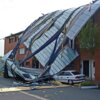
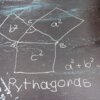
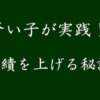
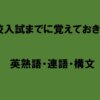
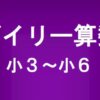
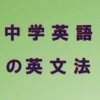
最近のコメント